Are you often confused by the fine print in telecom service agreements? You're not alone; many consumers find the jargon overwhelming and the terms unclear. In this article, we'll break down common telecom service terms in a simple, straightforward manner, making it easier for you to understand what you're signing up for. So, grab a cup of coffee and let's dive into demystifying these telecom terms together!
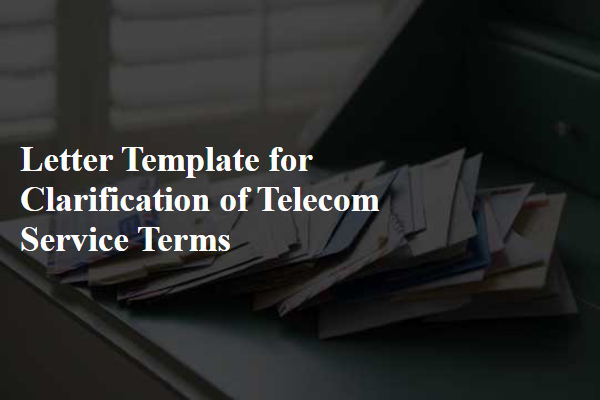
Clear identification of parties involved
For effective communication regarding the clarification of telecom service terms, it is essential to clearly identify all parties involved in the agreement. This includes the service provider, such as AT&T or Verizon, and the customer, who may be an individual consumer or a business entity. Relevant information should include the full legal names, contact details (such as phone numbers and email addresses), and any account identifiers associated with the services rendered. Additionally, it can be beneficial to note the date of the agreement and specific service features in question, like internet speed, data limits, or contractual obligations, to establish context for the clarification request. Accurate identification allows for a streamlined resolution process and helps prevent potential misunderstandings regarding the terms of service.
Specific service details and scope
Telecommunications services often encompass detailed terms and conditions that outline specific service details, such as bandwidth limitations, data usage caps, and the scope of coverage areas. For instance, a service agreement may specify a maximum download speed of 100 Mbps (megabits per second) in urban areas but reduce this to 20 Mbps in rural locations. Additionally, contracts might detail customer support availability, including hours of operation and response times, which may vary by service tier. Understanding service level agreements (SLAs) is vital, as they often dictate performance metrics, including uptime guarantees of 99.9% or higher. Furthermore, terms regarding equipment rental, installation fees, and termination policies (such as early termination fees of up to $300) are also crucial for consumers to review, ensuring transparency and clarity in the services provided.
Defined terms and conditions
Telecommunication service agreements often include specific defined terms and conditions that outline user rights and responsibilities. These agreements typically encompass details regarding service availability, such as 4G LTE or fiber-optic connectivity, payment structures including monthly fees and late charges, and contract length, often set for 12 to 24 months. Important clauses refer to data caps (maximum data usage limits), throttling policies (reduced speeds after reaching limits), and cancellation fees (penalties for early termination). Additional factors may include equipment rental terms, responsibilities for damages, and customer support channels, crucial for maintaining service quality and user satisfaction. Addressing these elements is essential for enhancing transparency and ensuring customer understanding.
Contact for further assistance
Telecom service agreements often contain specific terms that may cause confusion. For example, "unlimited data" may include a fair usage policy, indicating that customers could experience reduced speeds after exceeding a certain threshold (often 22GB per month). The term "coverage area" refers to the geographic regions where service is available, which may not include rural zones or certain buildings. Customers should also be aware of "contract duration," which typically lasts 12 to 24 months, during which early termination fees may apply. To ensure clear understanding and address any concerns, contacting customer service representatives is advised, providing detailed clarification of the service contract terms.
Request for confirmation in writing
Telecommunication services often include intricate terms and conditions that require thorough understanding. Subscribers frequently encounter contractual agreements outlining service categories, coverage areas, data limits, and pricing structures. Specific terms such as "unlimited data" or "fair usage policy" may vary significantly between providers, impacting consumer experience. Notably, the Federal Communications Commission (FCC) regulations in the United States mandate clarity in service agreements to protect consumer rights. Customers may request written confirmation of critical terms directly from providers to ensure transparency and avoid unexpected charges. Seeking clarification becomes essential, particularly amidst promotional offers that may obscure essential details, affecting long-term satisfaction.
Letter Template For Clarification Of Telecom Service Terms Samples
Letter template of seeking detailed explanation of telecom service features.
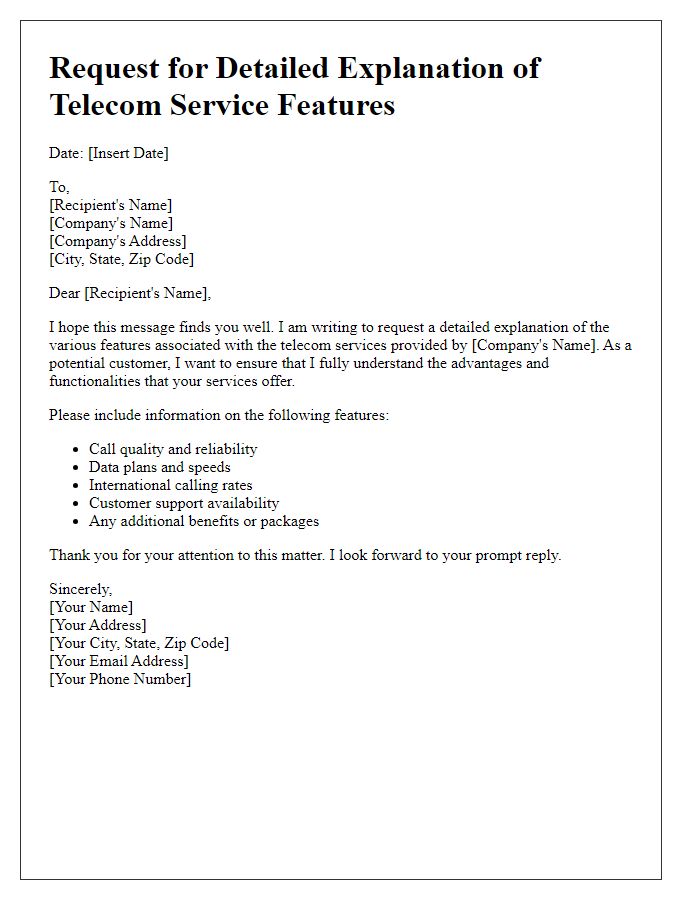
Letter template of request for understanding telecom service limitations.
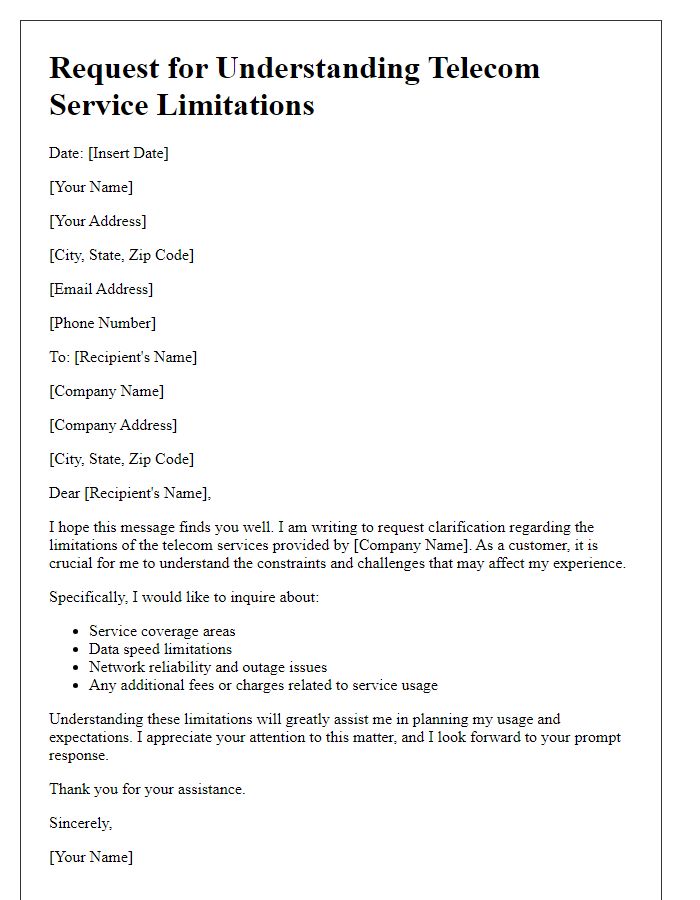

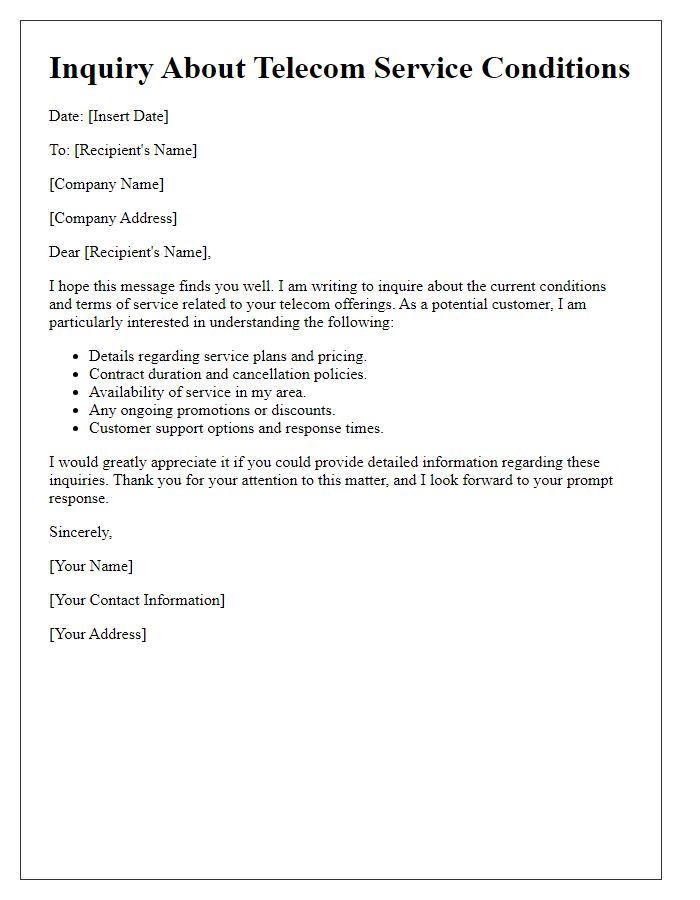
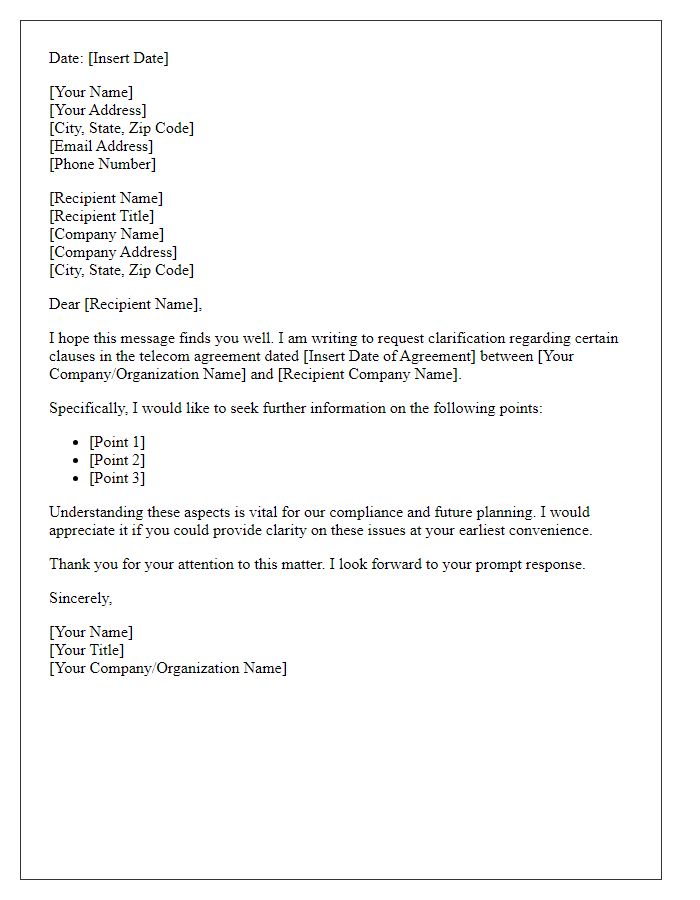
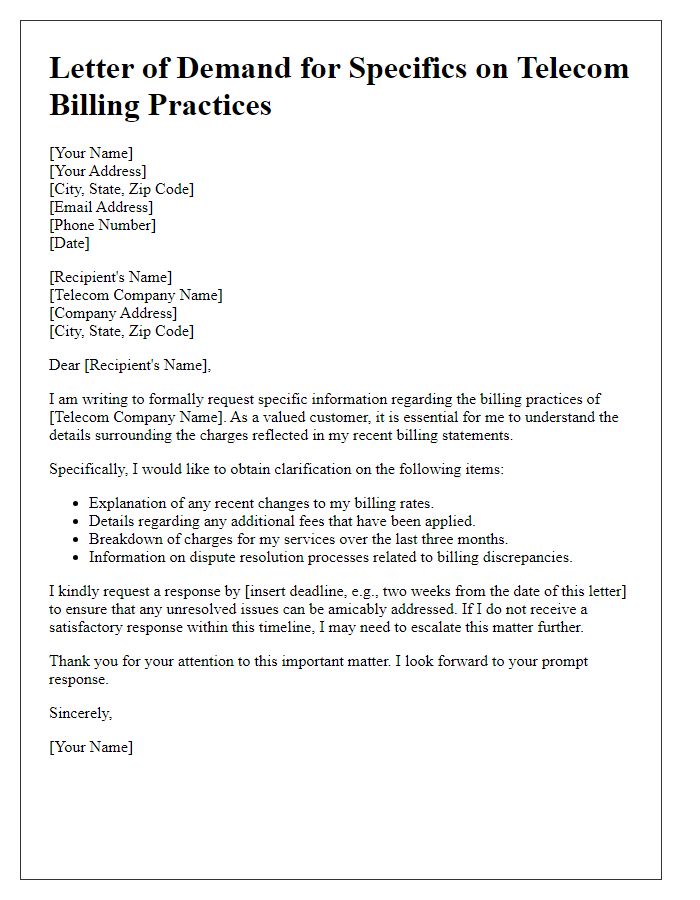
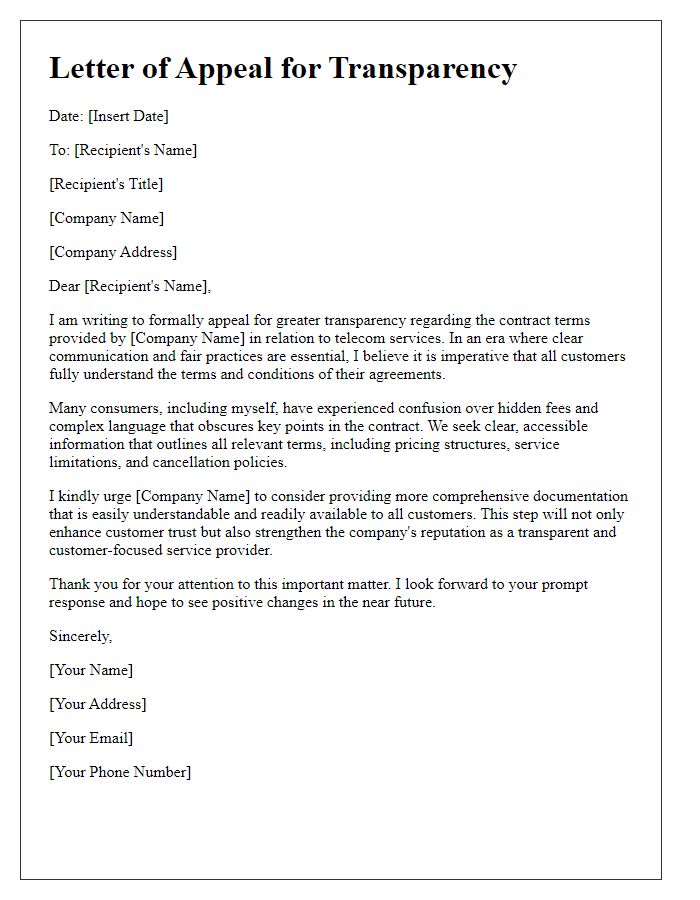
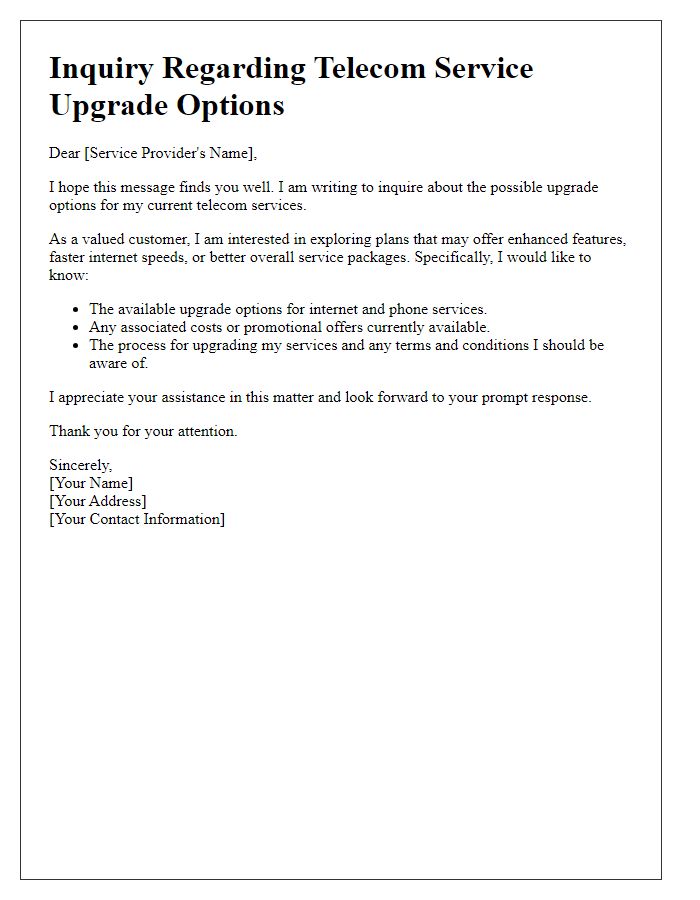
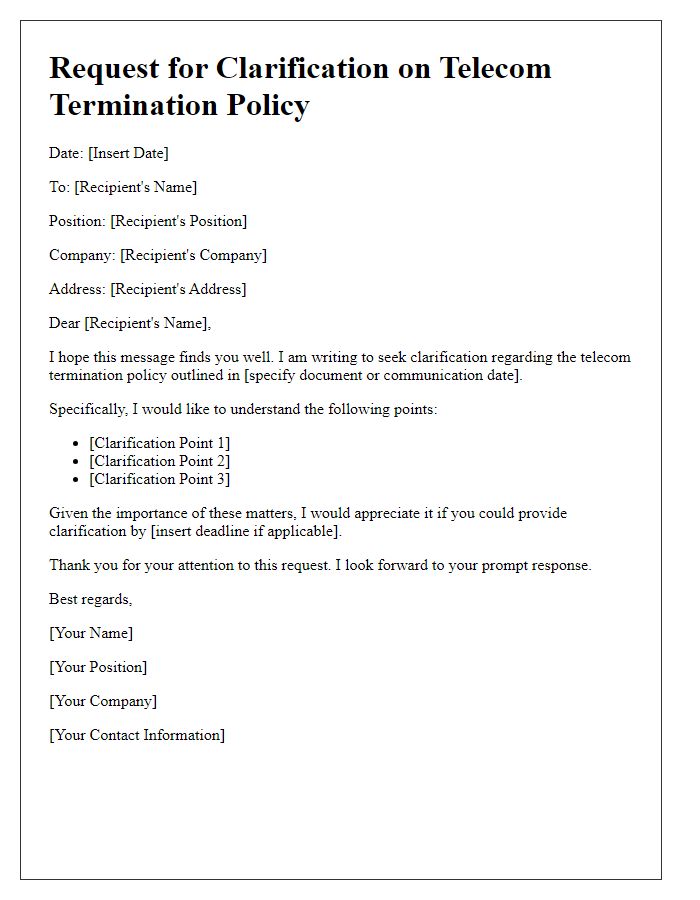
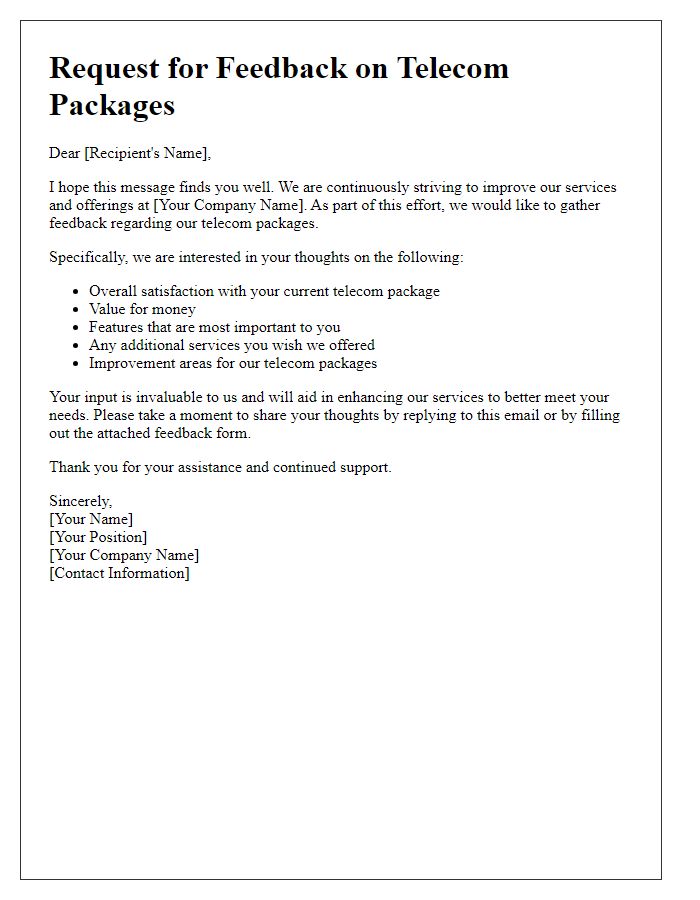
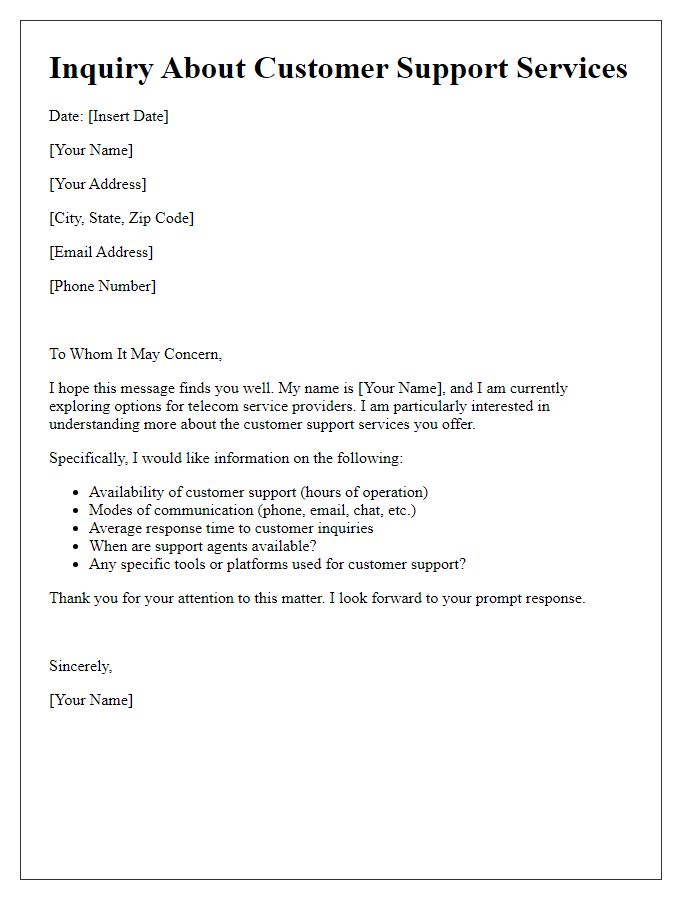

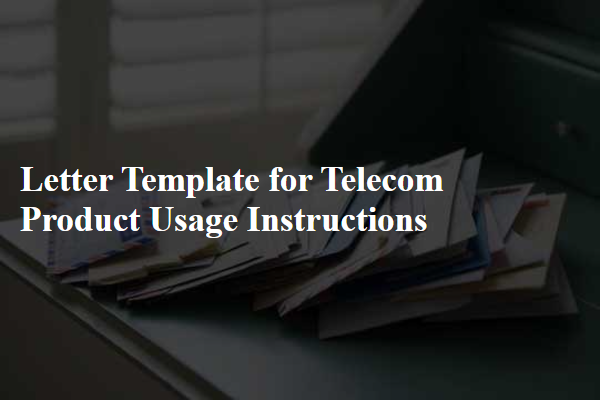
Comments